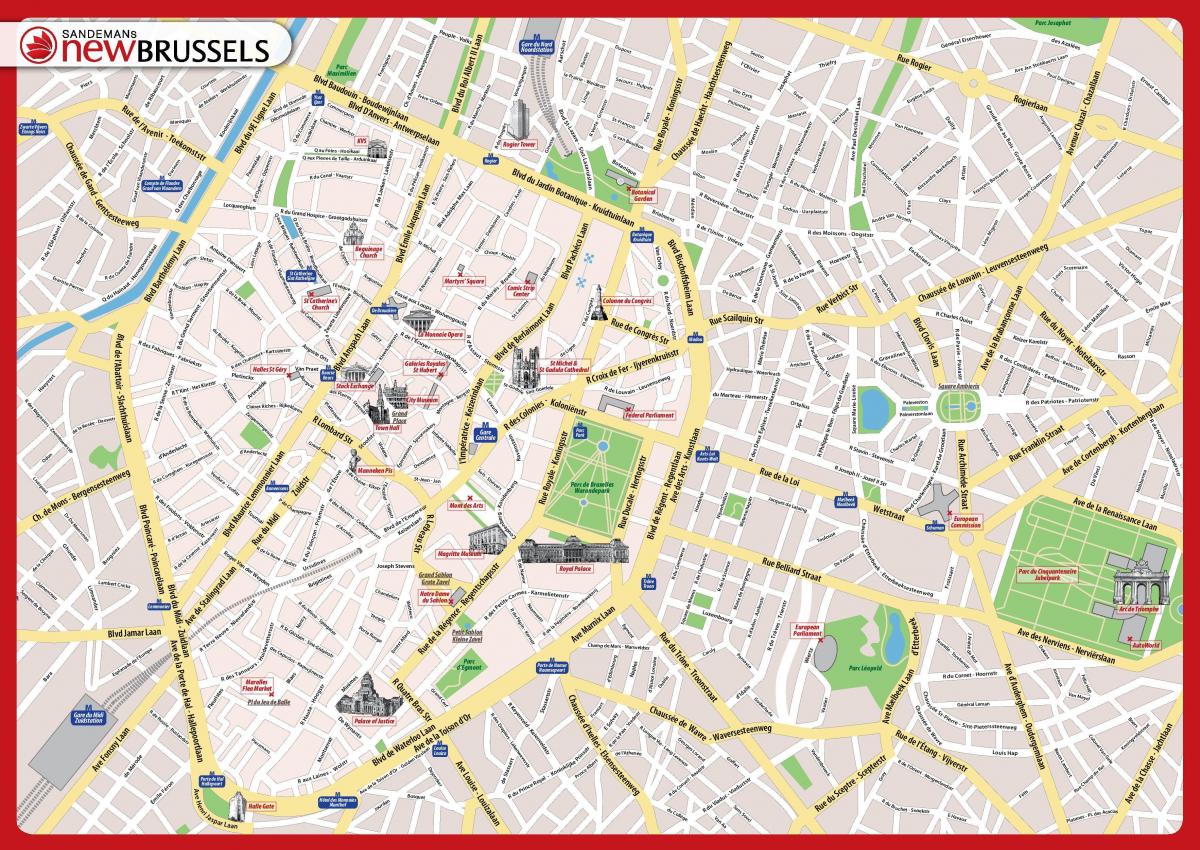search
Brussels map
Bruxelles map. Brussels map (Belgium) to print. Brussels map (Belgium) to download. Since the founding of the Kingdom of Belgium in 1830, Brussels has transformed from being almost entirely Dutch-speaking (Brabantian to be exact), to being a multilingual city with French (specifically Belgian French) as the majority language and lingua franca (see Brussels map). This language shift, the Frenchification of Brussels, is rooted in the 18th century and accelerated after Belgium became independent and Brussels expanded past its original boundaries.
Both immigration and the status of Brussels status as the "capital" of the EU mark its status as a cosmopolitan world city. The migrant communities, as well as rapidly growing communities of EU-nationals from other EU-member states, speak many languages like French, Turkish, Arabic, Berber, Spanish, Catalan, Basque, Italian, Portuguese, Polish, German, and (increasingly) English. The degree of linguistic integration varies widely within each migrant group (see Brussels map).
Despite what its name suggests, the Brussels-Capital Region is not the capital of Belgium in itself. Article 194 of the Belgian Constitution establishes that the capital of Belgium is the City of Brussels, a smaller municipality within the capital region that once was the city core. However, although the City of Brussels is the official capital as its shown in Brussels map, the funds allotted by the federation and region for the representative role of the capital are divided among the 19 municipalities, and some national institutions are sited in the other 18 municipalities.
Under the Köppen climate classification Brussels experiences an oceanic climate (Cfb). Brussels proximity to coastal areas as its mentioned in Brussels map influences the area climate by sending marine air masses from the Atlantic Ocean. Nearby wetlands also ensure a maritime temperate climate. On average (based on measurements the last 100 years), there are approximately 200 days of rain per year in the Brussels-Capital Region.
Since the end of the Second World War, Brussels has been a main centre for international politics (see Brussels map). Hosting principal EU institutions as well as the headquarters of the North Atlantic Treaty Organization (NATO), the city has become the polyglot home of numerous international organisations, politicians, diplomats and civil servants.


